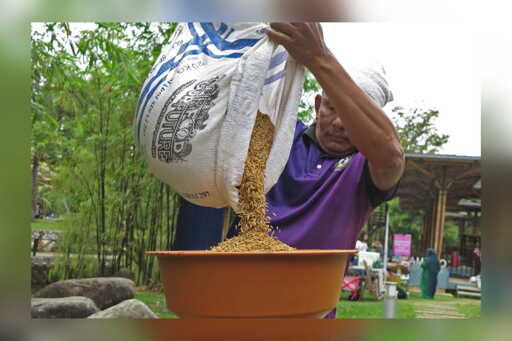This is Part 2 of a two-part series on proposed changes to Malaysia’s seed laws. Part 1 published Sept. 29 here. In a farmland surrounded by oil palm and rubber plantations in Perak, in northwestern Malaysia, a coconut sapling lies on the ground. Its young leaves stand upright and are still fused. Farmer Mohd Naim Razak kneels beside it and checks the leaves. “It’s not stable yet,” he says. A healthy sapling should be spreading its fronds, like the others in his farm. It is a pandan coconut sapling. If it adapts well to his farm, it will start bearing fruit in three years. The juice from a pandan coconut (Cocos nucifera) is known for its sweet fragrance, resembling that of pandan, a fragrant plant commonly used in Southeast Asian cuisine. Mohd Naim also plans to sell coconut seeds in the future. He says farmers can’t work without seeds. “Seeds are farmers’ important assets.” So, for him, farmers have to appreciate, conserve, save and take care of seeds. “We must also know that we have to control [seeds] ourselves,” he says. But while Mohd Naim works on his farm, a new challenge looms: Malaysia is set to propose a new law that could contradict his belief in farmers’ responsibility and rights over seeds. This is one of two proposed changes to Malaysian seed laws that have small-scale farmers concerned about their rights. In 2026, the Ministry of Agriculture and Food Security is expected to propose a crop seed quality bill…This article was originally published on Mongabay
From Conservation news via this RSS feed


